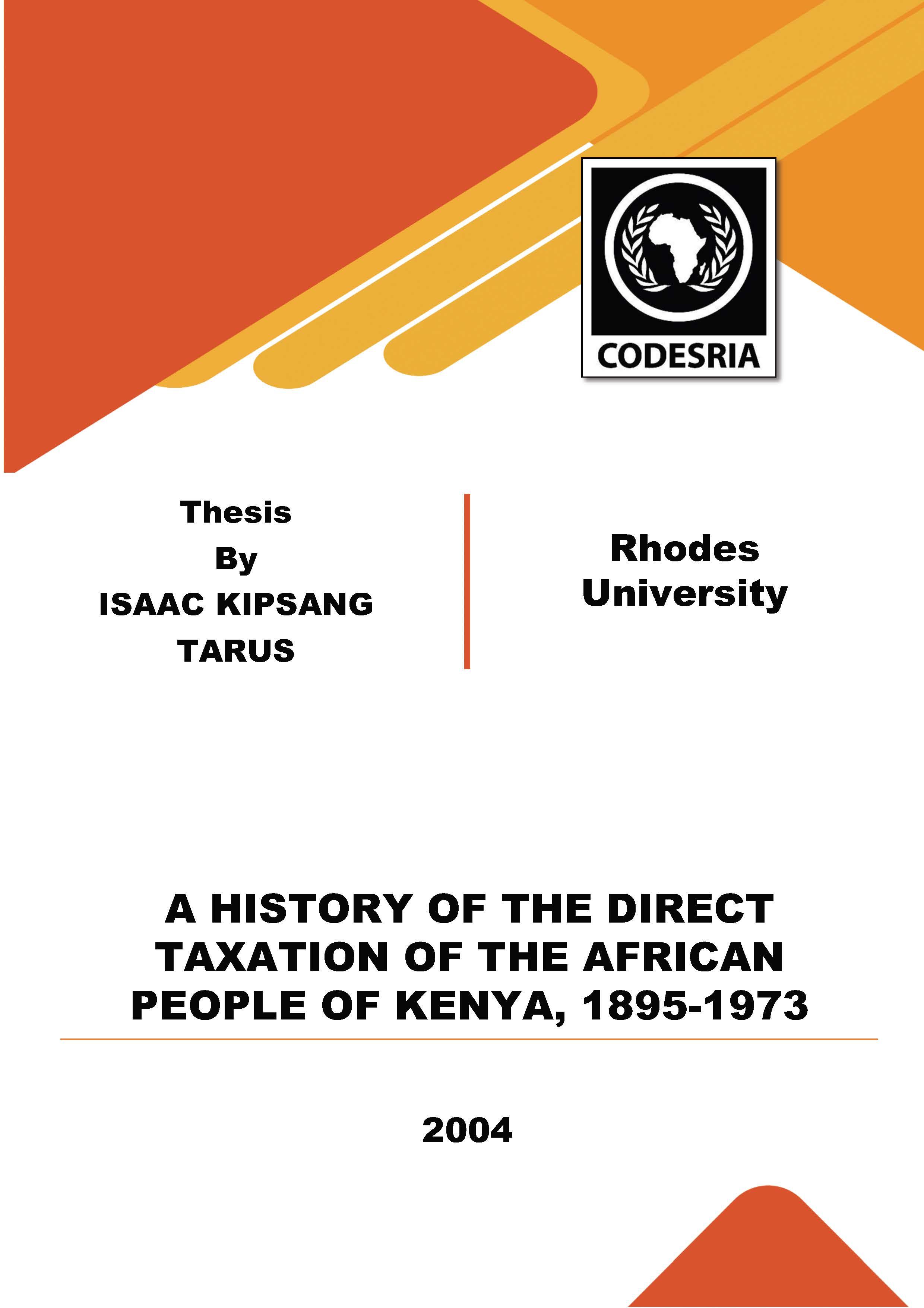A HISTORY OF THE DIRECT TAXATION OF THE AFRICAN PEOPLE OF KENYA, 1895-1973
Keywords:
HISTORY, DIRECT TAXATION, AFRICAN PEOPLE, KENYASynopsis
This study examines the origin, the manifestation and impact of the direct taxation of Africans in Kenya. While the state had several reasons for imposing taxation on Africans, the basic factor weighed on the need for a definitive source of revenue. For most of the colonial period, this aggregated to about 37Y:! percent of the total revenues. The thesis shows how taxes were collected from Africans, how this led to participation in the cash economy and how they continually resisted and evaded such taxati'on. Tax collection was synonymous with colonialism and this was manifested through ttie central role of chiefs, who used taxes and force to coerce Africans into migrant wage labour.
Through taxation policies, legislation and African resourcefulness, migrant wage labour served the needs of a colonial capitalist settler economy. In this way, the colonial state revealed its capacity for dominance, power and exploitation. Evidence has been adduced to show that African taxation was an important factor in Kenya's administrative, political and economic development. The policy of African taxation, land loss and poor working conditions are remembered as having interfered with African mechanisms for accumulating wealth. One of the main objections of the payment of taxes was the manner of its collection. Those unable to pay were imprisoned or detained while many took to instant flight at the sight of the tax collector. The thesis shows that in spite of all these harsh tax collection methods, peasants remained largely resilient and industrious.
The Mau Mau movement was the culmination of various peasant grievances in which the colonial state used steep taxation as a counter-insurgency measure. Kenya's independence in 1963, however, never altered the predatory nature of the state. Subtle,
opportunistic and overt ways continued to be used to extract taxes from the peasants and the working class. It was not until 1973 that the much-hated colonial poll tax that had been / renamed as graduated poll. tax was abolished and replaced by indirect taxation. Finally, taxation like other colonial legacies has endured and has become one of the most important sources of revenue for the government to manage its fiscal policies.
Downloads
References
Kenya Labour Commission Evidence and Report, 1912-1913. Native Affairs Department Report, 1925.
Chief Native Commissioner's Reports, 1925-26. A de Wade V. Wade 'History and character of Taxation in Kenya', 25 May 1931.
G.Walsh and HR Montgomery, Report on Native Taxation, Government Printer, 1936.
International Labour Organization, Report on Wages, Income, Policy and Development in Kenya (Geneva: ILO, 1971.
Lord Mayne, 'Certain Questions in Kenya, Report by Financial Commissioner, 1932'. The Pim Commission Report, 1936. Native Affairs Report, 1939-45. Department of Education Annual Report, 1937.
Report of Committee on Local Native Finances in relationship to Government Finance, 1941.
J. F. G.Troughton, Report on Local Native Finances, 1944. The Plewman Report of the Taxation Enquiry Committee, Kenya 1947. East Africa Royal commission, 1953-55 Report Report on the Working party on Graduated Personal Tax, 1963.






